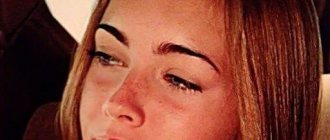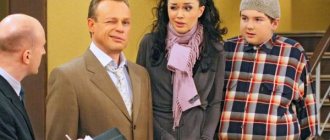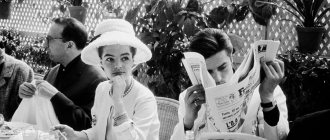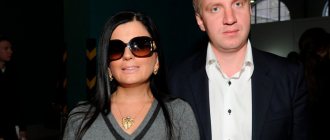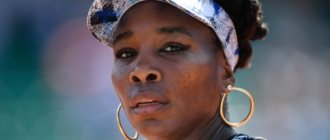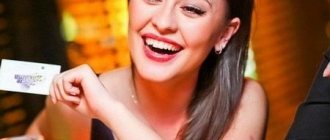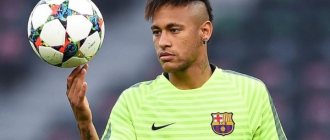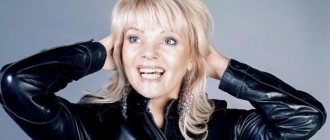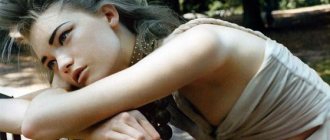Who is Novak Djokovic?
Born in 1987 in Serbia, Novak Djokovic began playing tennis at the age of 4 and was sent to Germany to train at age 13. After a steady rise to the top levels of the sport, he won the Australian Open in 2008 and led Serbia to its first Davis Cup victory in 2010. In 2011, he won three of four Grand Slams and compiled a 43-match winning streak on his way to the world. No. 1 rating. With his first French Open victory in 2016, he became the first to hold all four major titles simultaneously since Rod Laver in 1969.
Srdjan Djokovic: “Novak has no crisis, it’s just nature taking its toll”
The father of the 12-time Grand Slam champion in a sincere exclusive interview with a journalist from the Evening News
Yulia Evremovich talks about the successes, failures and childhood of her eldest son
“It’s very difficult to watch your son play in big matches. I know the surroundings of Wimbledon or USO better than the stadiums themselves. I usually walk in circles and listen to the applause. If they are loud, it means Novak’s opponent won the point, if they are weak, it means Novak is in the lead. I can’t wait for the match to end, and sometimes they last for five hours. At home, I just turn off the TV, go outside, get into the car and drive around the city in circles, playing music loudly. And I’m waiting for an SMS from my wife with the result.
— After 950 matches played on the professional tour, and God knows how many junior matches, what can a father with your emotional experience say to his son if he loses?
- Keep your head up - and next time you will be the best. I'm not really giving him advice like the "experts" who know everything do. Sometimes I don’t even understand how they aren’t ashamed to just say his name? Once upon a time I was an “expert” myself, accompanying him on trips, watching his every prank. I had to do the hardest work - deciding whether my son was capable of becoming a professional tennis player. Can you imagine what a horror it is to decide the fate of your child, to decide whether he is talented enough to become what he dreams of? Thank God that after a fairly short period of time this job ceased to be mine.
— After his victory at Roland Garros, the “professionals” vied with each other to discuss the topic of the crisis due to diet, Pepe Imaz, the fact that Novak took off the cross... What is your view on all this from a personal, paternal position?
- What crisis? Nature just demanded its way. Fatigue, injuries... It took its toll. At some point, we would still have to take a break. Of course, there were errors in treatment, but they were not intentional. And now everything is fine. Nole has begun the rehabilitation process, God willing, he will start playing soon. I assume that by the beginning of May, for the clay Masters, he will be fine.
There were many stupid attacks on him. Moreover, when it was most difficult for him, when he most needed support. I am sure that 98% of people were for him, on his side, but usually what is heard loudest is not them, but the remaining unfortunate 2% of notorious, flawed people. It is impossible to please everyone, even if you are Novak. Nevertheless, it is incomprehensible to me that even in Serbia there were ill-wishers. Murray, after three victories in the TBS, was awarded the title of sir, and Novak, after a dozen, faced such an attitude last year...
- He could prevent attacks on himself by uttering just one phrase - “I can’t perform at my best due to injury”?
- Maybe. But then it wouldn’t be Novak. This makes him different from many others. For this we should respect, not criticize. He was injured, but tried to hide it and did not react in time. And yes, it was a mistake.
— Perhaps he hid the injury, not wanting to show his vulnerability to his opponents?
- Exactly.
— And now, when he comes out onto the court wearing a sleeve, do his opponents see this as their chance?
“He doesn’t wear the sleeve anymore.”
— Will this small operation be enough for a big comeback?
Or will they again pursue a vegetarian diet, meditation, etc.?
— I have a few questions for those people who cannot understand. Is he good at what he does or not? How many times was he the best tennis player on the planet, topped the ranking? In 2011, the Americans declared him the most promising player in the history of tennis. Such a number of successful years spent at the very top could not but have an impact, but this is not a reason to call the current situation a crisis. I would like everyone else to make the same “mistakes” in their lives, while remaining the best at what they do.
— Last season, everyone left Djokovcia’s team except Pepe Imaz, who was neither seen nor heard during Novak’s periods of success, but who came to the fore during the recession…
“His role in Novak’s career and his psycho-physical development is so small that it’s not even worth wasting words on it. He's just one of many people around Novak. And it appears only sporadically. Novak took from him what he needed. Yes, he once greatly helped Marco in overcoming a severe psychological crisis, and for this I am deeply grateful to him.
— Is the cross from the Hilandar monastery in St. Athos on Novak’s neck again?
“A couple of years ago, tired of all these stories, I told him, “Son, return the cross.” He snapped his fingers, unbuttoned his shirt and showed that the cross, just as it was on his chest, remained there. And he said, “Dad, I will never turn away from God’s path.”
— When did you realize that your son is a special child?
— When my mother was dying of cancer. He was only three years old, he lived with my parents in Kopaonik, in a house. He asked his grandmother where it hurt, and spent hours massaging the sore spot, walking with her, telling stories. He extended her life for at least another year. So he was special not only on the court.
- And on the court?
“He was light as a feather, skinny, and matured later than other players of his generation. At tournaments we met the muscular Rafa, the big powerful Frenchmen Tsonga and Monfils. Gasquet was also stronger and physically stronger than him; there were several powerful Chileans. But Novak’s secret, which I realized for myself 20 years ago, was that his specific warm-ups and stretches prolonged his career. And he was also very dedicated to tennis. Poor boy who had almost no time to play after school. Then on television he told the truth that he played at night.
— The nightly tennis vigils started when he had a brother?
— With Marco, they destroyed the whole house. They used books instead of a net; they played with table tennis rackets, but with tennis balls. The younger one constantly teased him and in some places shamelessly cheated him, because Nola had to go to school in the morning. He regularly attended school until the fourth grade, was an excellent student, and easily learned languages, which helped him greatly when, at the age of 13, he left home for the Nika Pilic Academy. In Munich, we could not help him financially; we ourselves felt like pumpkins without roots. I had to scramble to somehow pay for all this. We gave him some pocket money with us, a couple of hundred dollars, for some boyish needs, so that he would not feel like a beggar, and a few months later he returned with gifts for his brothers. He said - they are small, they need it more.
— And how did he manage to adapt to the world of tennis, leaving the familiar atmosphere of the house where he had brothers?
— Tennis is an asocial sport, but he has a family to communicate with. It is difficult to make friends among those with whom you fight for titles and prize money. But I know for sure that after finishing their careers with some of their current rivals, they will maintain relationships and become friends.
—
Andy Murray?
- I can easily imagine it. They actually grew up, matured together, there was a seven-day difference between them, and we almost always went to tournaments together - Judy with Andy, me with Novak. Once we came to Livorno for a tournament, and they played football all day long.
— It’s probably not difficult to imagine how in a few years they will fuss with their children the same way Judy and Srdjan fussed with them?
“I would like my grandchildren to go through tennis, even though I know how hard it is. I will be happy to go through it with them as a grandfather, because I adore my grandson and granddaughter. Stefan recently started skiing. Little Novak only wore them for seven months. He was supposed to become a skier like me, but became a tennis player. Stefan has an excellent athletic heritage, we will support any of his choices, whatever they may be. In this regard, it will be easier financially for Novak than it was for me, but the little one will have a hard time. He will be weighed down by the same burden as Marco and George. It's not easy being Novak Djokovic's son or brother.
-
And your father?
“In this country, being the father of a famous person can sometimes be difficult, but what Novak is doing now is just the beginning. The vast majority of tennis players are just tennis players, Novak is also a tennis player at the moment, but his interests are not limited to that. And whatever he does in the future, he will be successful. I am sure that it will be here in Serbia, because at home, in his country, he feels best. Since the age of 12, he has been wandering around the world, but he is sure that in the end he will return to the people who love him.
—
Are you building a house in Belgrade?
- We will have our own nest. Not on Lake Como, but in his home country. Children have more and more different obligations, but we ask that at least the grandchildren stay with us. We chase them all over the world to snatch at least a couple of days with our sons. This is the price of tennis. When Novak comes home, we don't talk about tennis at all. We've had enough of this sport for six lifetimes.
— In ordinary families, the father, the head, goes on business trips, but with the Djokovics it’s the other way around?
— In our country, children often live away from their parents. We ourselves have been living with dogs for eight to ten years instead of three sons. Marco and Djordje were very talented, but not everyone can withstand comparison with the best player in the world. It had a very strong impact on them, especially Marco. But now everything is fine with him, he works as a coach at a tennis club in Spain, and he has a wonderful girlfriend. Jole returned home from the USA two years ago because he could no longer see us alone. I tried my best to convince him to continue his studies in the States, but he preferred to be educated at home. He is studying finance and banking and is doing well. All three have their own path, but we support everyone on their path.
https://www.novosti.rs/vesti/naslovna/drustvo/aktuelno.290.html:711822-Srdjan-Djokovic-Novak-nije-u-krizi-priroda-uzima-svoje
Early life
Novak Djokovic was born on May 22, 1987, in Belgrade, Serbia. Father Srdjan and mother Dijana owned Family Sports, which had three restaurants and a tennis academy. Djokovic's father, uncle and aunt were professional skiers, and his father also excelled in football, but Djokovic was a child prodigy.
In the summer of 1993, at age 6, Djokovic was discovered by Yugoslav tennis legend Jelena Gencic. his parents have a sports complex. Gencic then worked with Djokovic for the next six years. During this time, the war in the former Yugoslavia and the bombing of Belgrade meant that for almost three months, Djokovic and his family spent several hours in the middle of each night in the basement. Djokovic said the hardships of the war made him take up tennis with even greater determination. At age 13, he was sent to the Pilitz Academy in Munich, Germany, to compete at a higher level. In 2001, at the age of 14, he began his international career.
Childhood and youth
The biography of the future tennis player began on May 22, 1987 in the territory of the former Yugoslavia, in the city of Belgrade. Zodiac sign: Gemini. Novak himself admits that he owes his success to his parents, mother Dijana and father Srdjan, who constantly supported their eldest son in his sporting endeavors. In the Djokovic family, Novak is the first to devote himself to tennis. His father excelled in another sport, football, and was also a professional pilot.
Novak Djokovic as a child
Novak picked up his first racket when he was four years old. When the boy was six, he was noticed by the famous Serbian tennis player Jelena Gencic. She told his parents that he was one of the most talented children she had ever met. Therefore, Srdjan and Dijana began to take care of their son’s sports career. Gencic trained the future sports star until 1999; as Novak himself admits, Elena devoted a lot of time to him, teaching him the basics of tennis. Often in interviews, an athlete compares his first coach with his second mother.
When the boy was 11 years old, NATO planes began bombing Belgrade. He celebrated his 12th birthday in a bomb shelter. In an interview with CBS, Novak said that, despite the chaos that was happening around him, he tries to remember this time brightly and positively. He says that the children were not sent to school, so he had more time to play tennis. But the war cost him 76 nights, which Novak spent in the basement during the bombing, deprived him of sleep and made him feel afraid.
Novak Djokovic in his youth
His coach Elena Gencic tried to continue training her ward at this time. She was a prominent figure in the Serbian tennis world and easily received permission to play on any court, so the woman looked for safe courts. Every night a new object was chosen for bombing, so that after some place was “bombed”, it was possible to train there without fear.
After Gencic, Novak was coached by former Croatian tennis player Nikola Pilic. The 12-year-old boy studied at the Pilic Tennis Academy in Germany, where he transferred in September 1999. Novak spent 4 years there.
Djokovic's first debut in the professional sports arena happened in 2001, when he was 14 years old.
Novak Djokovic on the court
As a teenager, Novak made an impressive start to his sports career: he won single and double European Championship titles, and was also part of the Junior Davis Cup team that reached the final in 2001.
Novak has two younger brothers, Marko and Joje, who also fell in love with tennis from an early age. However, they were not as successful in this sport as their older brother.
Career Highlights
The 14-year-old Djokovic finished 2001 as a three-time European champion in singles, doubles and team championships. He won a silver medal at the World Junior Championships in the team event for Yugoslavia. At age 16, after winning five ITF tournaments, he became the 40th best junior tennis player in the world. In 2004, he won his first ATP Challenger tournament in Budapest, where he started in qualifying. The following year, he qualified for Wimbledon and reached the third round, moving him up the rankings and into the Top 100.
In the 2007 season, Djokovic played in the semi-finals of the French Open and Wimbledon. He won his second Masters title in Montreal, beating the Top 3 players - Roger Federer, Rafael Nadal and Andy Roddick - making him No. 3 in the world. He competed for Serbia at the 2008 Beijing Olympics and won a bronze medal in singles tennis . In 2010, the Serbian national team won the Davis Cup for Serbia for the first time in history. Djokovic won 43 matches in a row in 2011, the only player in the world to achieve this feat. That same year, he won the Australian Open, Wimbledon and the US Open to become the No. 1 tennis player in the world.
In 2012, Djokovic won the Australian Open singles title and reached the Semi-finals at Wimbledon. However, he was beaten in the semi-finals by long-time rival Roger Federer, who went on to win the Wimbledon final against Andy Murray. Later that year, Djokovic faced Murray himself in the final at the US Open. He fought against Murray, but he ended up losing the match after five sets.
For the third year in a row, Djokovic won the men's singles title at the Australian Open in 2013. He was second at Wimbledon that year losing to Andy Murray in the final. At the US Open, Djokovic was the best player. He easily dispatched his opponents in the first three rounds of the game, but lost to Rafael Nadal in the final.
In 2014, Djokovic won his second Wimbledon title in an epic five-set win over a seven-set winner. Champion Roger Federer. This was his seventh Grand Slam title. At the 2014 US Open, Djokovic defeated Andy Murray to reach the semi-finals for the eighth time. He was subsequently defeated in the semi-finals by Japan's Kei Nishikori, who became the first player from that country to reach a Grand Slam final.
Djokovic started 2020 by winning the Australian Open over Andy Murray after a bitter battle on the blue court. This was his fifth Australian Open title and the eighth Grand Slam title of his career. He then knocked out nine-time champion Rafael Nadal in the quarter-finals of the French Open, but failed in his quest to claim his first French crown with a loss to Stan Wawrinka in the final.
Djokovic returned to the action at Wimbledon in July, beating Richard Gasquet in the semi-finals before beating Federer to win his third singles title on the famous grass courts. Facing Federer again in the rain-delayed 2015 US Open final, Djokovic shrugged off a slump early in the match to eventually claim a tight four-set victory. The victory gave him his 10th major singles title, and left him with an incredible 27-1 record in grand slam play for the year.
The world No. 1 stormed out of the gate to start the 2020 season, rising to his sixth Australian Open title. In June, after consecutive second-place finishes at Roland Garros, he finally broke through with his first French Open crown. With the win, he became the eighth man to complete a career Grand Slam and the first since Rod Laver in 1969 to hold all major titles at once. But Djokovic's quest to win every Grand Slam title in 2016 came to an abrupt end at Wimbledon when he was defeated by 41st-ranked American Sam Currey in the first week of competition. Later that year, he lost to Wawrinka in the US Open final.
How to bet on Djokovic matches?
What you should pay attention to:
- Results of the tennis player's performance . Defeat is rare for a Serb. Joker spends more time on hard court, but performs equally well on all courts. A minus game handicap is the optimal bet when Novak is in optimal condition. An alternative bet is “Total under by games” when the opponent is of an average level.
- Statistics . It will tell you what form the athlete is in: serve, winners, forwards, double faults, points won, break points saved, time taken to complete the game, etc.
- Titles, points, rating . Pay attention to whether Djokovic needs to defend his title and points. If a person was eliminated in the second round in the previous year, he is unlikely to strain himself in the new season. If a player reaches the final, where it’s a shame, having lost a match point, he lost to a direct competitor for the first line of the rating, expect a serious attitude and possible triumph at the tournament.
Topic: How to make a forecast for a tennis match
Principled duels
As you know, in any sport, there are fundamental battles. We can observe confrontations of this kind in tennis. When it comes to Serbia, the following meetings stand out:
- Djokovic – Nadal
- Djokovic - Federer.
A stubborn struggle continues to this day. Djokovic's advantage is gradually increasing. He is younger than his rivals, more versatile, versatile and acts more consistently. Djokovic's matches against Federer, Nadal or Murray always turn out tense, bright and protracted. At Grand Slam Tournaments in the above duels, it is profitable to take two bets:
- TB (3.5) in sets.
- Break exchange - yes.
- Medical time out - yes.
Olympic Games Rio de Janeiro 2020
In shocking disappointment, no. One of the world's best players was forced out of his Olympic dreams on the second day of competition when Argentina's Juan Martin del Potro beat him 7-6, 7-6.
Although he left the court in tears, Djokovic told reporters: “Delpo was the better player and he deserved to win. This is a sport."
He added: “This.” It's very sad and disappointing to have to leave the tournament so early, but I'm glad that my good friend who was struggling with injuries won.
Recovery
Djokovic spent $75,000 on a high-pressure chamber that helps tone muscles, control lactic acid levels and stimulate stem cells.
How Federer spends the biggest purse in men's tennis
What Maria Sharapova spends the biggest money on in women's sports
What does the world's richest footballer Cristiano Ronaldo spend his money on?
Tennis
Tennis is almost back – top 10 players will perform on Djokovic’s exhibition tour
05/26/2020 At 11:44
Tennis
Injury and Wimbledon return
< After some disappointing results in the early stages of 2017, including a second-round loss at the Australian Open, Djokovic tried to shake things up by bringing tennis great Andre Agassi on board as his new coach. He won the Eastbourne International on grass that summer, but after his Wimbledon quarter-final exit, he announced that he was playing out the rest of the season to help his ailing right elbow recover.
Djokovic eventually underwent elbow surgery following his fourth-round loss at the 2020 Australian Open, and although he was shaky in his first tournaments since his return in March, the champion within showed signs of awakening. That summer he beat Nadal in a marathon five-set semi-final at Wimbledon before dethroning Kevin Anderson to win the 13th Grand Slam title of his career.
Djokovic earned his 14th Grand Slam title and third US Open victory when he won the 2020 US Open against Juan Martin del Potro. The following January, he defeated Nadal to claim a record seventh Australian Open singles title and his 15th overall major championship, breaking ties with Pete Sampras for the third time all-time.
First Grand Slam games
In 2005, the tennis player entered the Grand Slam tournaments. The first was the Australian Open, and then Roland Garros. He also entered the main draw at Wimbledon and reached the 3rd round. The experience helped him crack the top 100 and finish third at the US Open. However, there were still 6 years left before the first iconic victory.
Since 2006, Novak has been coached by former Slovakian tennis player Marian Vajda. It was he who led the future champion to his first victory at the Australian Open. Since then, Djokovic has become known not only for his aggressive style of play, but also for his humorous parodies of his opponents. He showed Rafael Nadal, Maria Sharapova, and many others.
In 2007, Novak ended the dominance of two main rivals on the court: Rafael Nadal. He played semi-finals at Roland Garros and Wimbledon and won his second Masters title in Montreal. There, Novak beat the best players, including Andy Roddick. This trophy brought him to third place in the world rankings.
Personal life
Djokovic speaks Serbian, Italian, German and English. His two younger brothers, Marco (b. 1991) and Djordje (b. 1995), both followed his path into professional tennis careers. Djokovic's easy-going personality earned him the nickname "Joker", a combination of his last name and the word "joker". He is known for his humorous courtly imitations of fellow players.
Djokovic is a member of the Serbian Orthodox Church, and in April 2011 he was awarded the Order of Saint Sava, 1st class, the highest decoration given for his demonstrated love for the church and the Serbian people." He participates in the Champions for Peace club created by the international organization Peace and Sport in Monaco.
He created the Novak Djokovic Foundation to help disadvantaged children in Serbia receive education and resources to lead productive and healthy lives.
